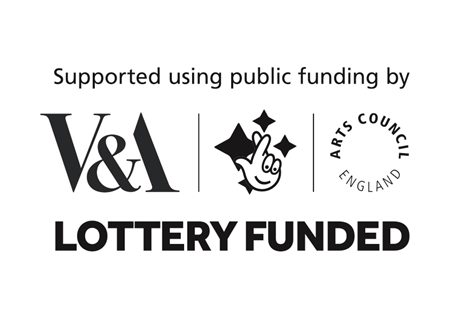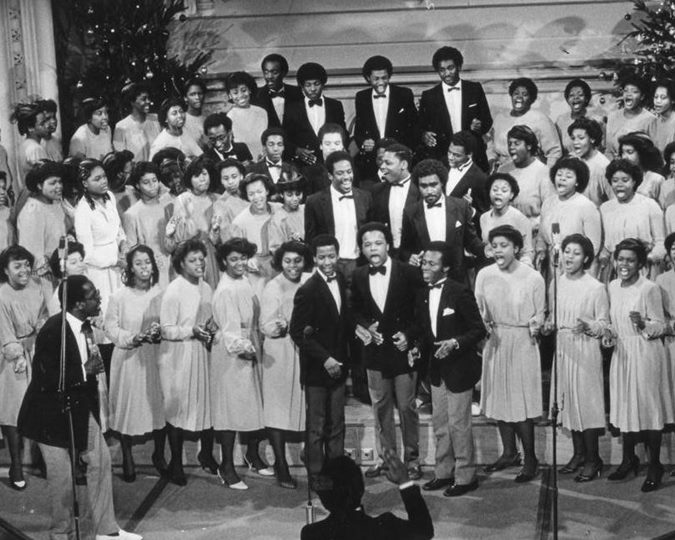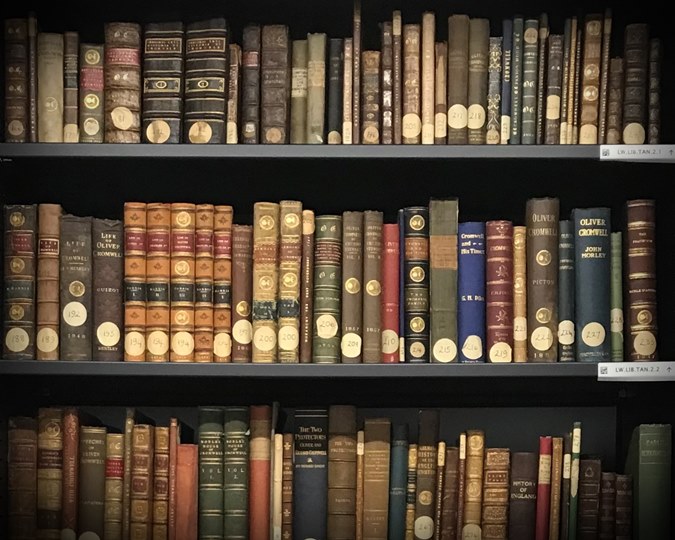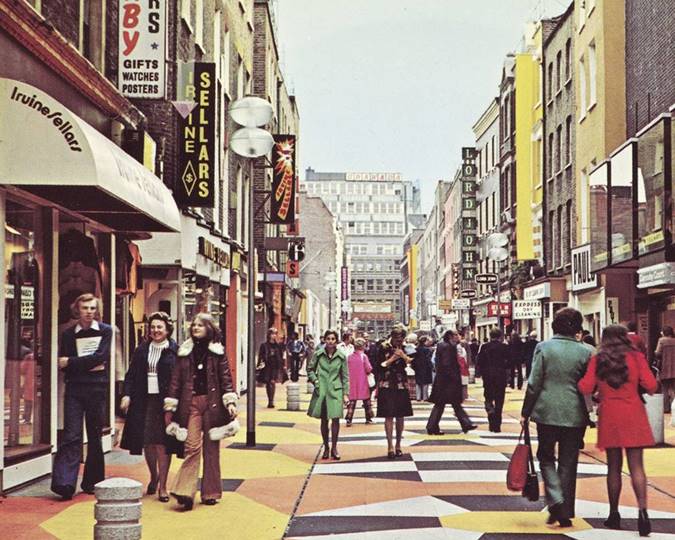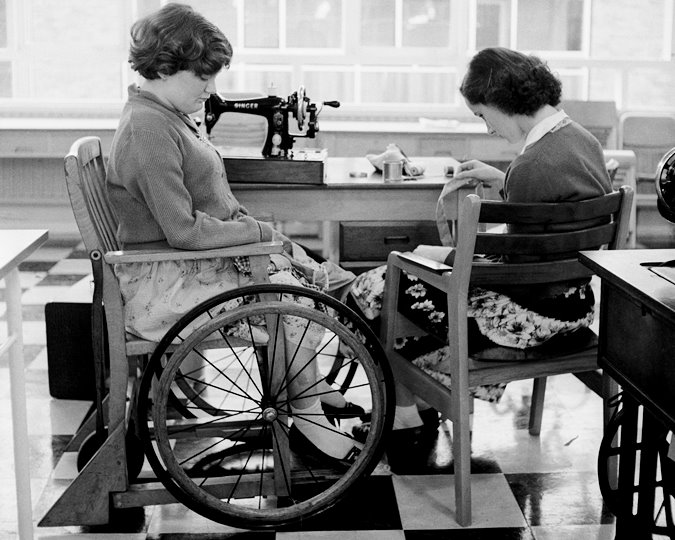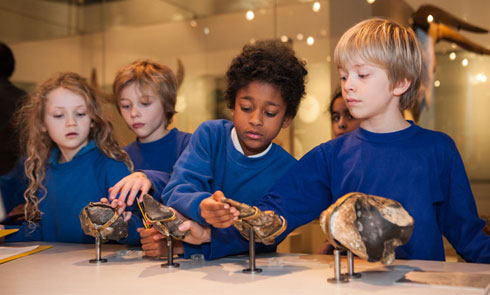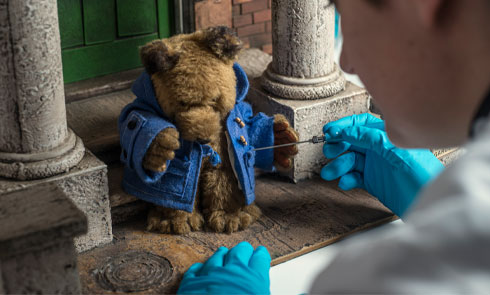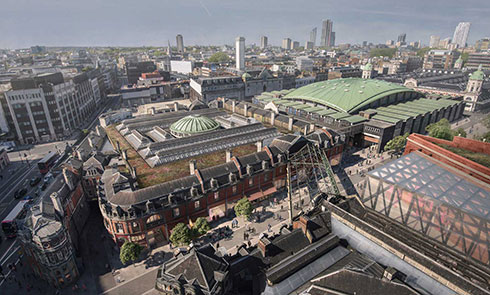- Plans approved to create new London Museum and regenerate Smithfield
- From DJ sets to late-night cinema Museum of London announces blockbuster festival weekends to close London Wall
- fabric to become world’s first nightclub-in-residence in a Museum
- Major new Museum of London Docklands exhibition uncovers London’s 700 year history of public executions
- 15-year-old Londoner takes over city bus stops as winner announced of Museum of London, BBC 100 & TfL poetry competition
- Museum of London unveils Greatest Hits mural to celebrate 45 years at London Wall
- Museum of London marks 100 days to closure with free event and giveaways for visitors
- Museum of London raises a further £7 million towards its new home at West Smithfield
- Museum of London celebrates 45 years at London Wall as it commences countdown to closure
- Sunil Gupta’s ‘Pretended’ Family Relationships photo series acquired by the Museum of London
- Putin’s Happy – Museum of London acquires Jeremy Deller film revealing a divided country and a city full of protest
- The Museum of London celebrates city's sporting hero with new display on Harry Kane
- The Museum of London presents 'Grime Stories: from the corner to the mainstream', opening 17 June 2022
- Joe Corré, Jordan and Richard Boon to appear in an uncensored, live Punk.London debate
- 300 year old love message embroidered in human hair to go on display at the Museum of London Docklands
- Museum of London begins countdown to West Smithfield relocation
- Douglas Gilmore appointed Managing Director of Museum of London Docklands
- New research to shed fresh light on the impact of industrialisation
- The Prince of Wales becomes Museum of London Patron
- The Clash’s Paul Simonon’s famous Fender Precision bass to go on display
- Behind the Scenes of the Museum of London
- Stanton Williams and Asif Khan to design new Museum of London at West Smithfield
- Museum of London acquires ensemble inspired by the creativity of the Windrush generation
- Feeding Black: Community, Power & Place opening 16 July at Museum of London Docklands
- Museum of London acquires NHS sign from ZSL London Zoo’s Giraffe House as part of Collecting COVID
- Museum of London sites set to reopen 19 May with extensions of Dub London: Bassline of a City and Havering Hoard: A Bronze Age Mystery
- Museum of London acquires Mayor of Lambeth’s homemade ceremonial chain as part of Collecting COVID project
- Museum of London acquires ‘viral’ Tweets for Collecting COVID
- Weavers’ Company donate £100,000 to the Museum of London’s move to Smithfield
- Museum of London receives Trump Baby blimp ahead of the Presidential Inauguration
- Museum of London to collect COVID dreams
- Arsenal’s captain donates Black Lives Matter shirt to the Museum of London
- Dub London: Bassline of a City opening 2 October at the Museum of London
- Public statement October 2020
- London Sugar & Slavery gallery
- New major exhibition Havering Hoard: A Bronze Age Mystery opens 11 September at the Museum of London Docklands
- Robert Milligan statue statement
- Museum of London sites to reopen 6 August with four-week extension of The Clash: London Calling display
- Public statement
- Museum of London releases first ever recorded soundscapes of London alongside new recordings of London in lockdown as part of Collecting COVID project
- Design concepts for new museum at West Smithfield revealed
- The Museum of London collects shared experiences of Ramadan in lockdown as part of Collecting COVID project
- Unheard oral histories are released by the Museum of London to mark Windrush Day
- Collecting Covid: the Museum of London seeks to mark unprecedented pandemic for the future
- Millicent Fawcett’s ‘Steadfastness and Courage’ brooch to go on permanent display for the first time
- Museum of London submits plans to create a new world-class cultural destination in West Smithfield
- King Charles I’s execution vest to go on display in new major exhibition
- Museum of London to celebrate Dub Reggae and its influence on the capital
- East End bastion Syd’s coffee stall to be donated to the Museum of London
- Free exhibit celebrating the making of The Clash’s ground-breaking album ‘London Calling’ now open
- Museum of London acquires extremely rare plate that belonged to Samuel Pepys
- The story of the Krios of Sierra Leone to be told in the Museum of London Docklands’ latest display
- Museum of London to host The Clash: London Calling exclusive free exhibit of over 100 personal items
- The largest ever Bronze Age hoard in London has been discovered
- Designs for Museum of London’s new West Smithfield home revealed
- Smithfield Street Party
- Museum of London hopes to acquire both the Trump Baby Blimp and the Sadiq Khan Blimp as part of their permanent collection
- Secret Rivers
- Beasts of London
- Recently acquired panorama goes on display for the first time at the Museum of London
- Museum of London appoints leading names to Board of Governors
- Earliest skull ever mudlarked from the Thames to go on display at the Museum of London
- Museum of London acquires beautiful panorama of lost Houses of Parliament
- Bengali arts and culture on show at the Museum of London Docklands family festival.
- Bonus Levels: Artist Lawrence Lek invites viewers to re-imagine future London
- Young Londoners to take over Museum of London this March
- The Museum of London hopes to acquire Whitechapel 'fatberg'
- Treasured children’s author Jacqueline Wilson’s latest book Wave Me Goodbye inspires family day at the Museum of London Docklands
- The City is Ours: A Tale of New Cities
- Adventures in Peter Pan’s Neverland at Museum of London Docklands
- Photography of Londoners and their pastimes on show at Museum of London
- Tracking London’s most talked about topics and emojis
- London Nights: Museum of London unveils the city at night in major photography exhibition
- Museum of London Docklands celebrates Chinese New Year this February half term
- Statement on 20 May 2017
- Whitechapel’s famous monster fatberg is coming to the Museum of London
- Museum of London Docklands to showcase rare Roman sarcophagus in first public display
- Malcolm Reading Consultants appointed to run West Smithfield International Design Competition
- 8,000 years of human history on display at the Museum of London Docklands
- An Idea for a Future London open call winner announced
- Five Museum of London apprentices appointed
- London Visions: Hypothetical scenarios of a future London
- “Reputational whitewashing” investigated in latest display at the Museum of London Docklands.
- Rare George Cross medal goes on display at the Museum of London Docklands
- Museum of London displays recently acquired Sutherland drawings in new exhibition of Blitz artwork
- What does the future hold for London and cities around the world?
- Mayor of London and City of London Corporation pledge support for new Museum of London at West Smithfield
- Smithfield street party: Museum of London celebrates 150 years of Smithfield markets
- Museum of London uses Minecraft to recreate the Great Fire of 1666
- Museum of London releases third and final Great Fire 1666 Minecraft map
- Taste not waste: Be inspired by unique recipes using your leftover food for a more sustainable future London
- Museum of London opens most theatrical exhibition ever to mark 350th anniversary of the Great Fire of London
- Museum of London acquires 100 menswear items worn by townscape consultant Francis Golding
- Votes for Women programme
- Technology replacing jobs won’t halt our working spirit
- Rare Victoria Cross with mysterious story to go on display at the Museum of London
- New display at the Museum of London traces the capital’s obsession with ice skating
- Rare tools give insight into working lives of Roman Londoners at the Museum of London
- New display reveals complex history of British Army’s West India Regiments
- Historic vessels Knocker White and Varlet set sail to new home at Trinity Buoy Wharf
- Missing Bake Off? Take your taste buds back in time with 17th century gingerbread
- Paddington returns to Museum of London
- Learn how to code like a pro and celebrate digital technology at the Museum of London’s free family festival
- 17th century fire engine restored for Great Fire exhibition
- Museum of London boosts Great Fire collections with mysterious manuscript
- Major new gallery at Museum of London Docklands explores history of the world's largest docks
- Sir Edward Lister joins Museum of London Board of Governors
- West Smithfield Design Competition shortlist announced
- Museum of London bolsters its art collections
- West Smithfield International Design Competition launched
- Another record-breaking year for the Museum of London
- After dark at The Night Museum
- New display about the life of ‘The Royal African’ and the slave trade
- Statue of Robert Milligan joins Museum of London collection
- Our statement on Fabric
- People of Punk bring the year of celebration to an end
- Tunnel: the archaeology of Crossrail
- Museum of London to make 5,000 stories from the capital available to the public for the first time
- The Museum of London Docklands announces major exhibition with public call out to find iconic pieces of fashion history
- Trump Baby Blimp undergoes test inflation
- Museum of London Docklands launches the Dodger family trail, based on BAFTA-winning BBC TV series, Dodger
- Museum of London Docklands announces Indo + Caribbean: The creation of a culture
- Young Londoners push for a more sustainable city in Museum of London report
- Museum of London Docklands announces street party to mark its 20th anniversary, with Vanity Milan, star of Ru Paul’s Drag Race, to headline
- Museum of London formally appoints Sir Robert McAlpine as Construction Management Company on Smithfield project
- Rare Festival of Britain sculpture discovered in London garden will join Museum of London collection
- Jennifer Francis appointed Director of External Affairs at Museum of London
- Museum of London announces acquisition of major sports collecting project, including Wimbledon oral histories
- Coats worn by Princess Diana and Dot Cotton to go on display as part of a major new exhibition
- Bridget Banton and Samir Patel join Museum of London Board of Governors
- Museum of London issues public call for iconic signs from across the capital
- First witness to the Great Fire of London uncovered
- Opening Friday 13 October – Fashion City: How Jewish Londoners shaped global style at Museum of London Docklands
- Foundation stone unveiled for the new London Museum as principal construction works begin
- New research finds Black women of African descent more likely to die of medieval plague
- Rare tie discovered in charity shop goes on display in London fashion exhibition
- Museum of London Docklands launches new display in collaboration with Mind and Taking Shape Association
- Acclaimed Fashion City exhibition extended to 7 July 2024 with free student ticket offer for April and May
Putin’s Happy: Museum of London acquires Jeremy Deller film revealing a divided country and a city full of protest
23 June 2022
The Museum of London has acquired a film which documents protestors in full voice, on a subject that has divided opinion across the country for the past six years. Created by artist Jeremy Deller, Putin’s Happy captures a polarised political and social landscape in the wake of the 2016 Brexit Referendum.
Commissioned in 2019 for the Austrian steirischer herbst’19 contemporary art festival, Putin’s Happy (2019) sits within Deller’s cannon of politically aware work, which often explores Britishness and, specifically, Englishness – the people, icons, myths, folklore and cultural and political history of the country. While it begins in positive fashion, with a musical performance of the National Anthem, which segues into Beethoven’s Ode to Joy, the film, shot in and around Parliament Square between January and March 2019, soon reveals a divided nation.
The film, acquired with support from Art Fund and the ACE/V&A Purchase Grant Fund, focuses on the Leave and Remain protests and is filled with off-the-cuff conversations with activists and onlookers. Jeremy Deller allows people to open up about their views on Brexit, the media, and a wide range of social and political concerns, to explain their standpoints.
The 40-minute film eavesdrops on the confusion and anger felt by many, documenting a new and increasingly polarised social and political landscape. Its title is a nod to claims of Russian interference in the Referendum, following widespread allegations about disinformation campaigns spread via media and social media channels.
Putin’s Happy bears witnesses to some of the troubling cultural and political currents running through the United Kingdom, finding frustration and resentment amongst the protesting crowds. Yet, the film also includes interviews with some remarkably upbeat young people, providing optimism amid the rancour.
Jeremy Deller, said, “It was the worst of times and it was the worst of times. The streets of London around Parliament Square on so many days in 2019 became a living Hogarth painting. There was a constant cast of characters acting out all the nastiness and paranoia of social media. It would be funny if it was satire but unfortunately it was reality.”
Francis Marshall, Senior Curator of Art at the Museum of London, said, “Putin’s Happy offers a snapshot of the fractured debates that erupted in the wake of the 2016 referendum, shining a light on the nation’s relationship with the EU, Westminster and itself. Six years after the referendum, we can interpret the film for its immediate relevance to our lives today but also as part of a longer historical view of London as a centre for national debate, and for creative and artistic engagement. It will become part of the Museum of London’s collection, alongside the Women’s Suffrage collection, Trump baby blimp and Brian Haw’s peace camp- to document the city’s history as a place for protest and activism, a destination where people have long gathered to have their say.”
Putin’s Happy is a significant addition to the Museum’s contemporary art holdings. Over recent years it has acquired a growing number of film and video works, including Portrait of a River (2013), by Nikolaj Bendix Skyum Larsen, and the four London-based chapters from Laurence Lek’s digital game-based project Bonus Levels, one of which, Europa, Mon Amour (2016 Brexit Edition), imagines a dystopian future Dalston in the wake of leaving the EU. These moving image works sit alongside significant holdings of politically engaged conceptual art such as Margaret Harrisons’ Homeworkers (1978-80), Stephen Willats’ Working With a Defined Context (1978), and Peter Liversidge’s Sign Paintings for the NHS (2020), made in response to Covid-19.
-ENDS-
Notes to Editors
Jeremy Deller (born 1966) is an English conceptual, video and installation artist. He studied art history at the Courtauld Institute of Art, before completing an MA at the University of Sussex. He began exhibiting in the 1980s, often in unconventional spaces, including his own bedroom. Subsequently, his work has been shown in major venues worldwide, including Centre Pompidou and Palais de Tokyo, Paris, Kunstverein, Munich, Skulptur Projekt, Münster, Museum of Contemporary Art, Chicago, New Museum, New York, Hammer Museum, Los Angeles, and the Hayward Gallery, London. Deller won the Turner Prize in 2004, was awarded the Albert Medal of the RSA in 2010 and, from 2007 to 2011, served as a Trustee of the Tate Gallery.
About the Museum of London
The Museum of London tells the ever-changing story of this great world city and its people, from 450,000 BC to the present day. Our galleries, exhibitions, displays and activities seek to inspire a passion for London and provide a sense of the vibrancy that makes the city such a unique place.
The museum is open Monday - Sunday 10am – 5pm and is FREE to all. You can explore the Museum of London with collections online – home to 90,000 objects with more being added regularly. www.museumoflondon.org.uk.
The Arts Council England/V&A Purchase Grant Fund is a government fund that helps regional museums, record offices and specialist libraries in England and Wales to acquire objects relating to the arts, literature and history.
- It was established at the Victoria and Albert Museum (V&A) in 1881 and continues to be part of its nationwide work.
- The annual grants budget, currently £724,000, is provided by Arts Council England National Lottery Funding
- Each year, the Purchase Grant Fund considers some 150 applications and awards grants to around 100 organisations, enabling acquisitions of over £3 million to go ahead.
- Visit the website: www.vam.ac.uk/purchasegrantfund
Art Fund is the national fundraising charity for art. It provides millions of pounds every year to help museums to acquire and share works of art across the UK, further the professional development of their curators, and inspire more people to visit and enjoy their public programmes. Art Fund is independently funded, supported by Art Partners, donors, trusts and foundations and the 130,000 members who buy the National Art Pass, who enjoy free entry to over 240 museums, galleries and historic places, 50% off major exhibitions, and receive Art Quarterly magazine. Art Fund also supports museums through its annual prize, Art Fund Museum of the Year. The winner of Art Fund Museum of the Year 2021 is Firstsite in Colchester. www.artfund.org
